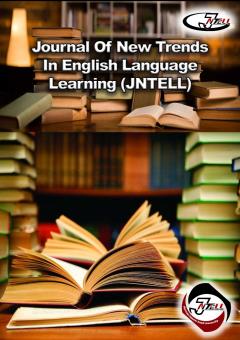Existential Exploration in Beckett's Molloy: Unraveling Narratives through Nussbaum's Capability Lens
محورهای موضوعی : Literary Studies
Seyedeh Keyhaneh Kafshchi
1
![]() ,
Rohollah Reesi Sistani
2
,
Rohollah Reesi Sistani
2
![]()
1 - Instructor, Department of English Language and Literature, Rasht Branch, Islamic Azad University, Rasht, Iran
2 - Assistant Professor, Department of English Language, University of Jiroft, Jiroft, Iran
کلید واژه: Martha Nussbaum, Molloy, Samuel Beckett, Literature and Ethics, Capability Approach,
چکیده مقاله :
This scholarly inquiry engages Samuel Beckett's Molloy through the lens of Martha Nussbaum's Capability Approach, illuminating the intricate interplay between literature and ethics. Beckett's enigmatic narrative challenges conventional storytelling norms, prompting readers to grapple with ambiguity, uncertainty, and the multifaceted aspects of human experience. Nussbaum's framework, which evaluates well-being in terms of individual capabilities and freedoms, serves as a profound lens through which to dissect Molloy. The novel's protagonist, Molloy, embodies themes of agency, physical and emotional well-being, identity, and the quest for freedom in a fragmented world. Through introspective narratives, the protagonists confront existential uncertainty and the dissolution of self. The exploration of narrative language, parody, and intertextuality underscores the multifaceted nature of literary expression. Ultimately, this comprehensive analysis showcases the power of literature to engage with complex ethical frameworks and shed light on the profound intricacies of the human condition.
This scholarly inquiry engages Samuel Beckett's Molloy through the lens of Martha Nussbaum's Capability Approach, illuminating the intricate interplay between literature and ethics. Beckett's enigmatic narrative challenges conventional storytelling norms, prompting readers to grapple with ambiguity, uncertainty, and the multifaceted aspects of human experience. Nussbaum's framework, which evaluates well-being in terms of individual capabilities and freedoms, serves as a profound lens through which to dissect Molloy. The novel's protagonist, Molloy, embodies themes of agency, physical and emotional well-being, identity, and the quest for freedom in a fragmented world. Through introspective narratives, the protagonists confront existential uncertainty and the dissolution of self. The exploration of narrative language, parody, and intertextuality underscores the multifaceted nature of literary expression. Ultimately, this comprehensive analysis showcases the power of literature to engage with complex ethical frameworks and shed light on the profound intricacies of the human condition.


